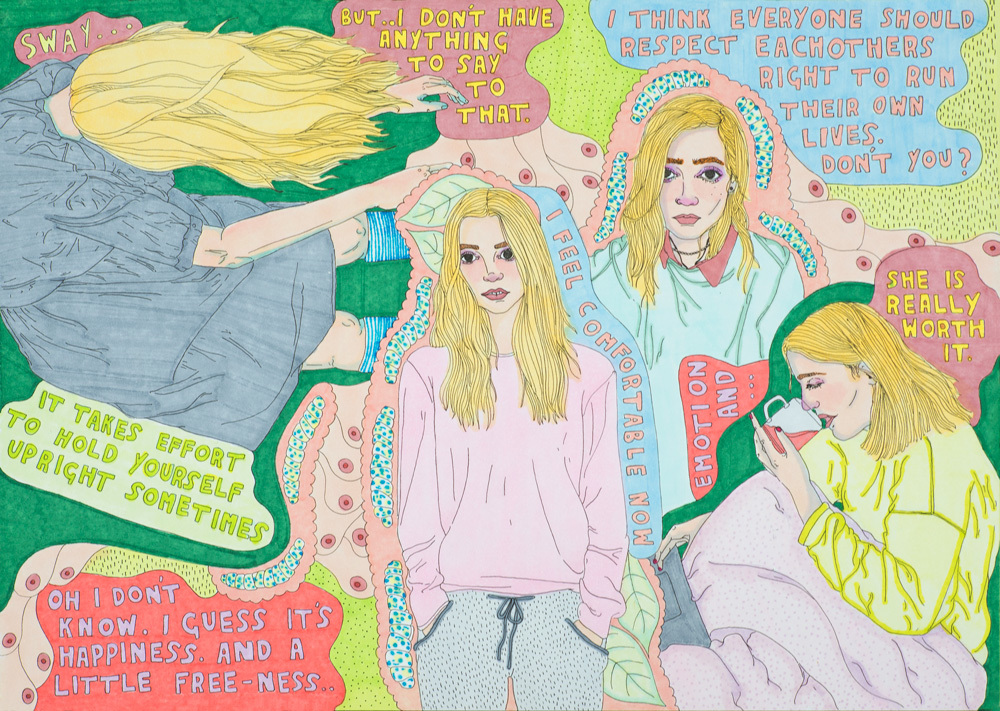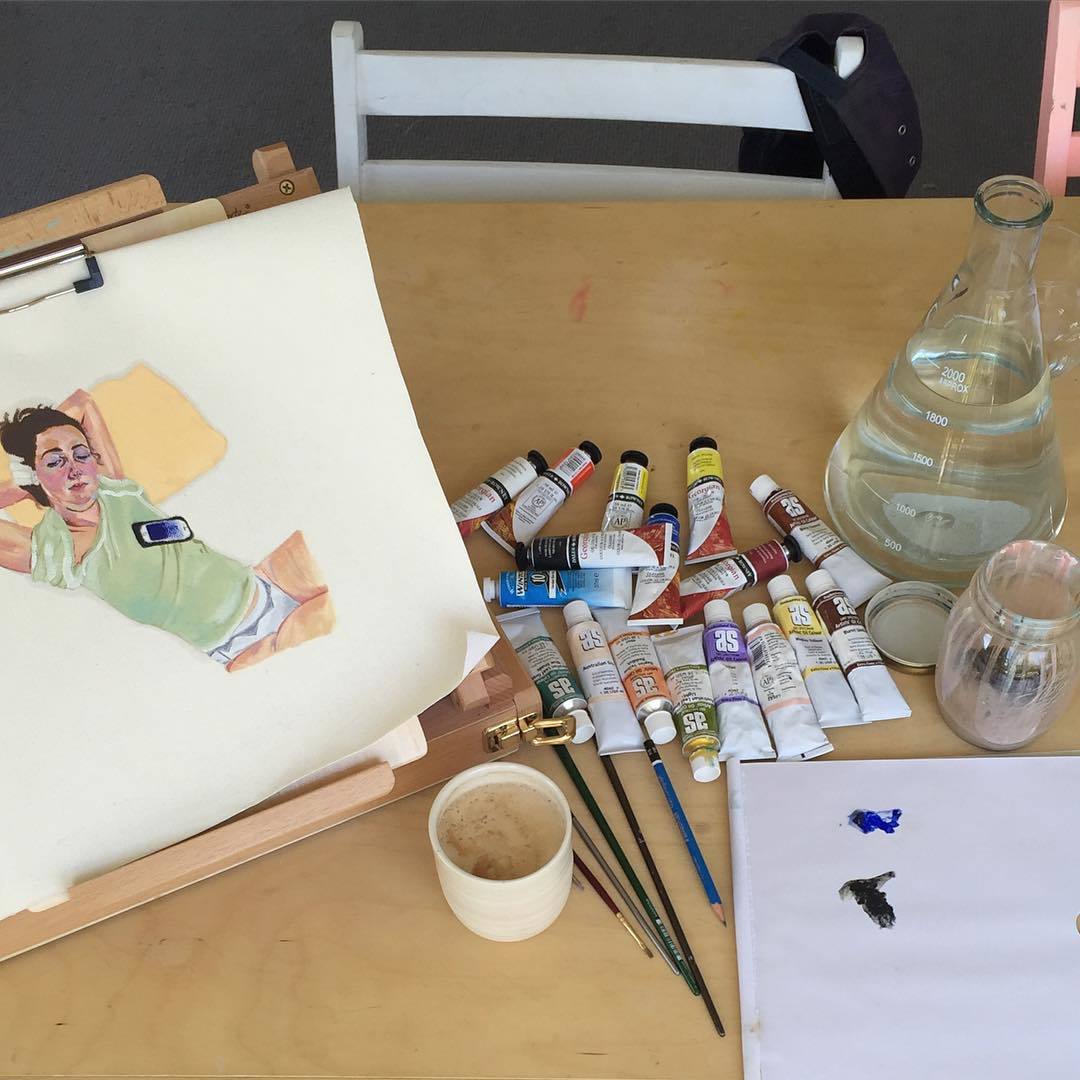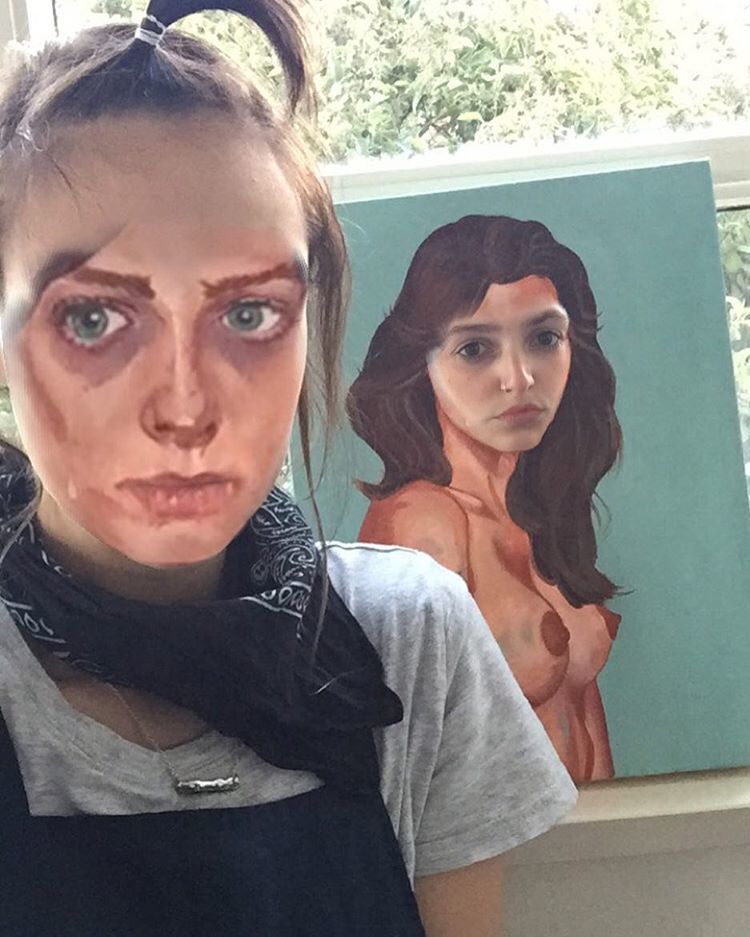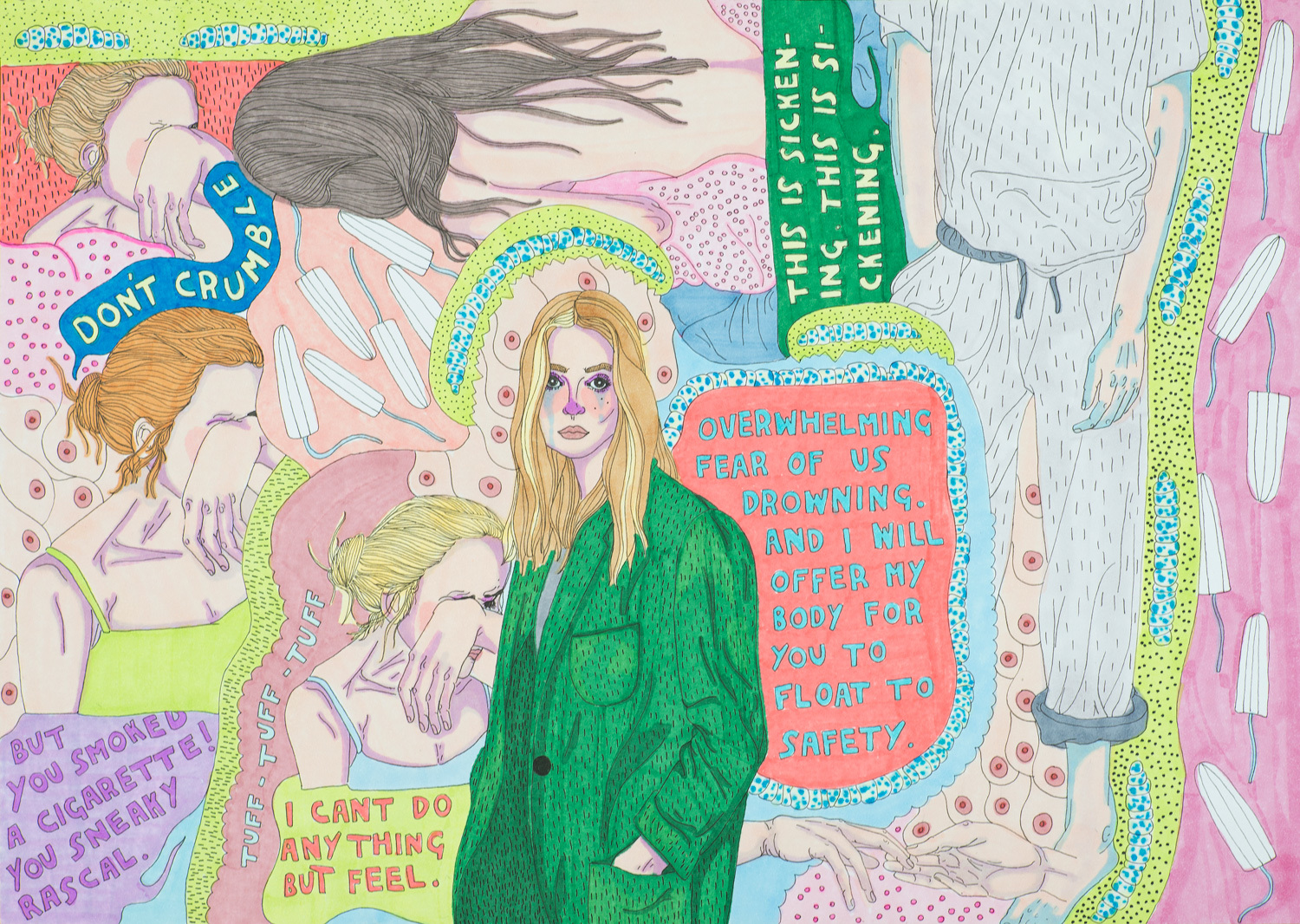Listen, everyone knows it’s hard to open up to people. It’s especially hard to open up to thousands of people, on the internet, who you don’t actually know. Somehow, Montana Kitching can: the way she shares her innermost thoughts makes her art — and online presence — so, so relatable.
The Melbourne artist’s bright, pastel coloured drawings are an unabashed ode to the power of women and their feelings. Her subjects, who are often naked and crying, express a vulnerable truth that never feels demeaning, patronising or melodramatic. Rather than following an artistic tradition that tends to dismiss or over romanticise women’s emotions, Montana’s work treats her subjects like complex beings. She addresses the issues many of us face daily — from anxiety, self-doubt, body dysmorphia and the stress of being expected to want and manage it all.
This sensitivity and candour has garnered her a whole lot of attention recently. So we thought we’d check in to see how she is translating her online message into IRL action.
You’re from an artistic family and have been making art for your whole life, but how did you come to explore these pretty specific subjects around women’s health?
I had a really bad breakdown. I was going to the doctor with all these physical symptoms like heart palpitations and fainting and the doctor just brushed it off as anxiety and told me it was all in my head. I started doing these drawings to understand it. I like to draw my thoughts that don’t make any sense. Then I make them colourful, co-ordinated and neat and watch them come together on the page. At first I’d just close my book and put them away, but then I started putting them on my blog and Instagram. A lot of the topics I draw about are sort of “out of bounds” in some way, but they’re topics I know a lot of girls feel really similarly about.

Your art is very intimate. As an someone exploring anxiety, how does it feel to put such a private issue onto a public platform?
It can be really scary. When I put up some of the drawings I get a little nervous because people know it’s me writing about myself — but I also find the reactions really comforting. I’ve had people email, message or comment on the photos saying they found comfort in my drawings because they helped them make sense of things they’re feeling themselves.
Are your inspirations purely internal, or do you draw from external sources as well?
It’s generally just things that come into my head. I also do a lot of nannying and my housemate and I look after a girl who is 11-years-old, she’s so curious and inquisitive. It’s interesting because she’s at such a vulnerable age, when you’re 11 you look up to pretty much every older girl and think they’re so cool. I feel we’re really privileged to be able to spend so much time with her and ease her into womanhood.

A lot of your work is about periods. Is there a reason you continue to return to that?
I had an eating disorder when I was a teenager and lost my period for four years. They told me I might not ever get my it back, and if that happened I wouldn’t be able to have children. I had no idea that if your body doesn’t think you’re healthy enough to carry a child it will stop regulating your period. I just thought it was so incredible. I can’t even remember what I did yesterday, and yet my body is constantly keeping tabs for me.
Where do you see your art going in the future? Are these themes you plan to keep developing?
I’m actually working on writing and illustrating a series of small books targeted at different age groups. The one I’m working on now is for 8 to 14-year-old girls; it’s basically just explaining growing up in a really sister-to-sister way, and covering the things no one told me were going to happen. When I was researching it I went to the library and the section about puberty is tucked away in this tiny, little corner next to all the parenting books. They’re mostly uninteresting textbooks. Puberty is already such a confusing time where you’re just like, “I hate this, this is not my body.” And there are girls out there who can’t talk to a mum, or are from really sheltered environments, so I’m writing these books about all the embarrassing times I was forced to learn from personal experience.

Credits
Text Kasumi Borczyk
Images by Montana Kitching
